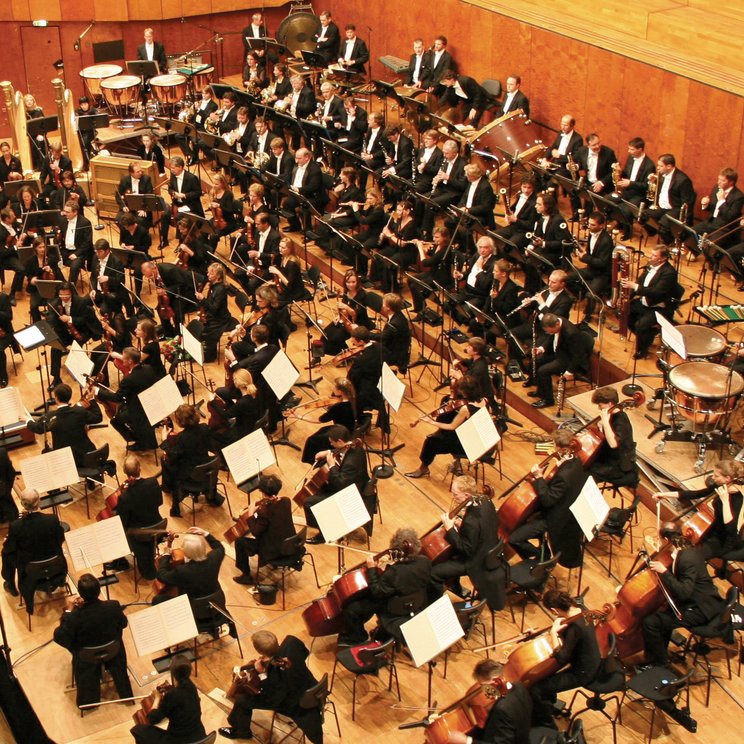
Radio-Sinfonieorchester Stuttgart des SWR
Vita
Founded in 1945, the Stuttgart Radio Symphony Orchestra of the SWR focuses on two principal artistic areas: on the one hand it fosters the great classical and romantic repertory and on the other it is committed to contemporary and seldom-played works and composers. Hans Müller-Kray and Carl Schuricht defined this objective when they left their stamp on the orchestra as its first conductors. With his artistic leadership between 1972 and 1982, Sergiu Celibidache cultivated a new ideal of sound through intensive and inspiring rehearsal work. Succeeding him as principal conductor were Neville Marriner (1983–89), Gianluigi Gelmetti (1989–1995), and Georges Prêtre (1996–98); in 1998 Roger Norrington took over leadership. With the start of the new season he will be succeeded by the young French conductor Stéphane Denève. The works of many composers, including Stravinsky, Hindemith, Henze, Penderecki, Kagel, and Pintscher, have been premiered by the Stuttgart RSO; they have had an especially close and long-standing alliance with Heinz Holliger, who recorded a multiple award-winning cycle of Koechlin’s music with the orchestra. Concerts featuring prize winners as well as the RSO Orchestra Academy provide encouragement to young artists; in order to win over new audiences for music, the RSO Young CLASSIX series offers diverse programming for different ages and levels. Numerous leading conductors and soloists—from Wilhelm Furtwängler to Georg Solti, Maria Callas to Anne-Sophie Mutter—have performed with the RSO Stuttgart. The musicians tour throughout the world: in 2010, for example, they undertook an Asian tour for the EXPO Shanghai, while in 2011 concerts will be given at the Festival de Música de Canarias, the BBC Proms in London, and elsewhere.
LUCERNE FESTIVAL (IMF) debut on 4 April 1994 in works by George Gershwin and Antonín Dvořák under the baton of Emmanuel Krivine.
August 2011